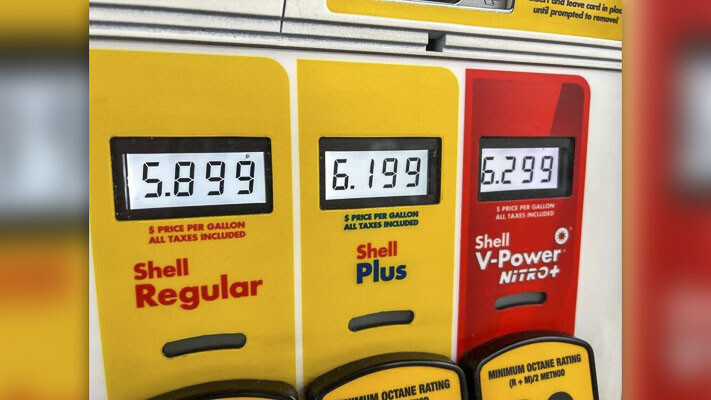
As of Jan. 1 of this year, Washingtonians are paying for a new cap-and-trade system
Timothy Schumann
The Center Square Washington
The average price of a gallon of regular unleaded was $4.57 statewide on Monday, up from $4.50 a week before, according to AAA data. Washingtonians are paying for three months of fuel price increases this calendar year following the implementation of a carbon tax earlier this year.
This 7 cents per gallon increase moved opposite the national average, which fell from $3.67 per gallon to $3.66 per gallon, a 1 cent per gallon decrease over the same time period.
“The recent surge in oil costs took a break this week, with the price of oil tumbling back into the upper $70s per barrel,” AAA spokesperson Andrew Gross said in a statement. “If this oil price trend continues, drivers may see falling gas prices.”
While that oil price may be reflected in the slight one-cent per gallon decrease nationally, residents of the Evergreen State are paying more than most. Washington’s pump prices currently stand at the fourth most expensive nationally. Only California, Hawaii, and Arizona are pricier.
Washington’s $4.57 per gallon places it 91 cents per gallon higher than the national average of $3.66 per gallon. It is also $1.44 per gallon more than what Mississippi residents – the nation’s least expensive fuel cost of $3.13 per gallon – pay.
Washington intra-state variance remains high at $1.33 per gallon, down 2 cents per gallon from last week. San Juan and Asotin counties had the most and least expensive gas prices in the state, at $5.16 and $3.83 per gallon.
Residents to the west of the Cascade range continue to pay higher premiums at the pump.
As of Jan. 1 of this year, Washingtonians are paying for a new cap-and-trade system.
“The first auction of CO2 allowances [averaged] $48.50 per metric ton of CO2. This equates to about 39 cents per gallon of gasoline and 47 cents per gallon of diesel,” announced a report by the Washington Policy Center based on recently released Washington State Department of Ecology data.
This report was first published by The Center Square Washington.
Also read:
- Opinion: Hiding the growing cost of the Interstate Bridge replacementJoe Cortright of the City Observatory addresses the rising cost of the Interstate 5 Bridge replacement project.
- 90 minutes of delay on Southbound I-5 in Southwest Washington on Friday afternoon, July 26Travelers using southbound Interstate 5 through Woodland should expect up to 90 minutes of delay during Friday afternoon and evening and should delay travel or prepare for additional travel time.
- Nighttime paving work on I-5 and SR 14 in Clark County July 28-Aug. 9Nighttime travelers in Clark County should expect delays for maintenance and paving work beginning Sunday, July 28 until the morning of Friday, Aug. 9.
- Northeast 182nd Avenue/Northeast Ward Road to be closed on Aug. 1Northeast 182nd Avenue and Northeast 172nd Avenue in Clark County will have single-day closures on August 1 and August 5 for road preservation, with detours in place.
- Interstate Bridge Replacement program awarded $1.499 billion FHWA Bridge Investment Program grantInterstate Bridge Replacement program officials have shared that the program received $1.499 billion through the Federal Highway Administration’s Bridge Investment Program.









